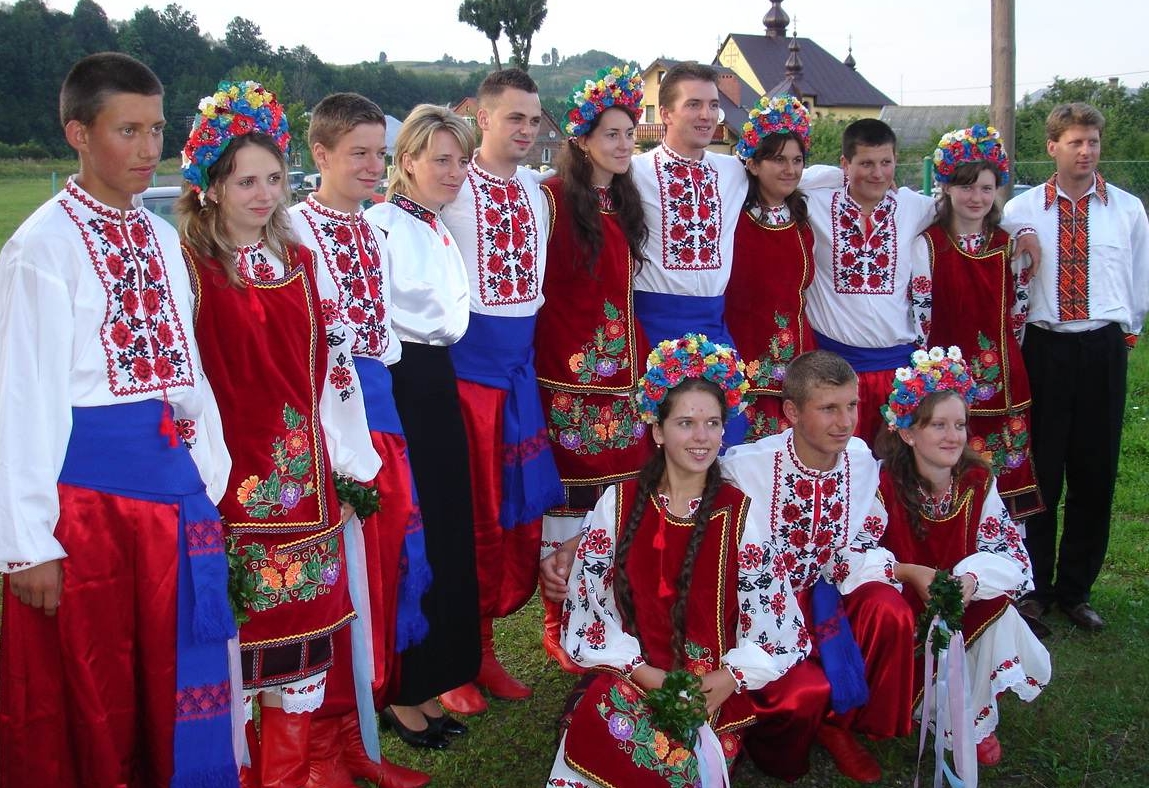
Moscow Using Budapest to Put Rusins in Play Against Kyiv
Publication: Eurasia Daily Monitor Volume: 11 Issue: 196
By:

In its efforts to promote secessionist ideas among the half-million-strong Rusin community along Ukraine’s Western border, Moscow is simultaneously pursuing three goals. First, it is forcing Kyiv to divert its attention from Russian aggression in the east to another theater, thus limiting the ability of Ukrainian forces to counter what Moscow is doing in Crimea and Donbas (eastern Ukrainian region encompassing the provinces of Luhansk and Donetsk). Second, it is cementing an ever closer relationship between Vladimir Putin and the increasingly pro-Moscow Hungarian government of Viktor Orban, a government that presents itself as a defender of the Rusins against Ukrainians. And third, Moscow is suggesting that if Kyiv continues to resist, Russian forces could dismember Ukraine to the point that it would be a landlocked republic with no direct access either to the Black Sea or to the countries of Central Eastern Europe.
Yet, apparently unwittingly, some Rusins—or Carpatho-Rusins as many style themselves—in the West are helping the Kremlin in this effort. To give but one instance: last week, the Carpatho-Rusin Consortium of North America launched an appeal denouncing Ukraine for its failure to recognize the Rusins as a nationality, a step all the other countries in the region have already taken. They demanded that Kyiv do so and back Rusin autonomy within Ukraine (us7.campaign-archive1.com, October 29). This demand is less than the secession that some in Hungary and Russia hope to promote. However, it has the effect of muddying the waters, thus allowing Moscow the opportunity for plausible deniability about its role. Furthermore, it exacerbates the ethnic feelings between the Rusins, on the one hand, and ethnic Ukrainians, on the other, in the western portions of Ukraine.
But Moscow’s involvement in the Rusin issue is obvious both from a Russian-inspired appeal of the Trans-Carpathian Rusins to Vladimir Putin (rossiyanavsegda.ru, October 28) and from a recent commentary published in Moscow’s Segodnya newspaper. The Segodnya article explored how Moscow can best make use of Rusin aspirations by taking steps below the radar screens of most observers and by coordinating its activities with Budapest—which, the paper argued, should remain in the lead on this issue (segodnia.ru, October 26).
In their appeal to Putin, the self-proclaimed leaders of Trans-Carpathian Rus ask the Russian president to support their aspirations of independence from Ukraine and to defend them from “enslavement by aggressive Galician fascism,” which is allegedly oppressing the Rusins and dispatching more ethnic Ukrainians to the area in order to weaken them. Moscow helped the Rusins in the past and must do so again because “a humanitarian disaster for the Rusin people and all the residents of Trans-Carpathia has begun at the hands of the Galician Nazis and local collaborators,” the appeal argues (rossiyanavsegda.ru, October 28).
To support the Rusins, the letter continues, Moscow needs to conduct “a peacekeeping operation for a short period” in Trans-Carpathia and “restore the pre-Soviet status of the Republic of Trans-Carpathian Rus,” which was not within the borders of Ukraine. And Moscow must insist that Kyiv recognize the results of the 1991 referendum in which 76.8 percent of those taking part declared that “Trans-Carpathia is a special, self-administered territory and a subject of international law not included in any present territorial-administrative formation”—that is, within Ukraine. The language of this appeal suggests that it was written not by Rusins but rather by Russians, or at least those under the influence of the Kremlin’s massive anti-Ukrainian propaganda effort.
The aforementioned Segodnya article, entitled “The Rusin Question. What Could the Position of Russia Be?” lends additional support to that interpretation. According to it, “the Rusin issue is acquiring particular sharpness against the background of the events taking place in Ukraine.” It is attracting the attention of Western powers who are interested in it for their own nefarious reasons largely related to gas pipeline routes. And it is being pushed hard by Hungary, which has “consistently insisted upon the idea of autonomy” if not independence for Trans-Carpathia. But Russia has an obvious interest and needs to take more steps, even if it continues to defer to and rely on Budapest, the Segodnya article argues (segodnia.ru, October 26).
At present, and to lay the groundwork for further action, Segodnya says, Moscow should be actively supporting Rusin culture and language, providing humanitarian assistance targeted at the Rusins, promoting stories about them in Russian media and especially channels directed at foreign countries, and bringing pressure to bear on Kyiv to create a Rusin autonomy by raising this issue with Ukrainian officials and in talks with the leaders of other countries. “In the Rusin question,” the article insists, “Russia must not compete with Hungary. It will be more constructive to set up a common humanitarian strategy and a common cultural discourse about Trans-Carpathia.” Hungary will take the lead in public; Russia need “only send humanitarian impulses signaling the readiness of Russia to support the protection of Rusin culture and make it an object of serious research.”
It appears increasingly likely that Russia will use Hungary as a cover to destabilize the situation in western Ukraine in the coming weeks, escaping blame or even attention until it may be too late, as was the case in Crimea. Consequently, even hints like these need to be tracked with care.




